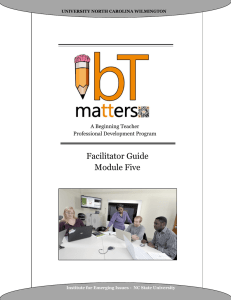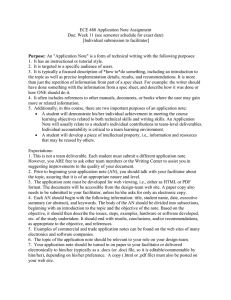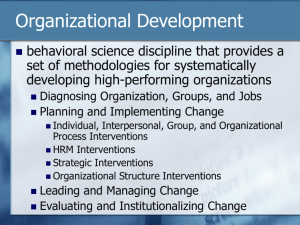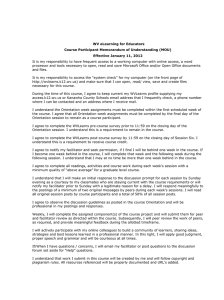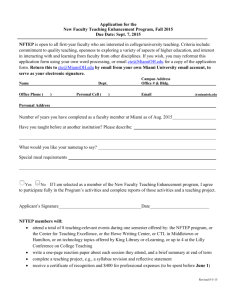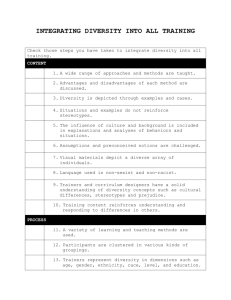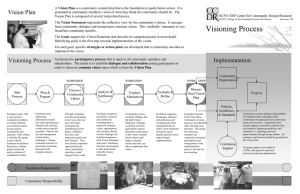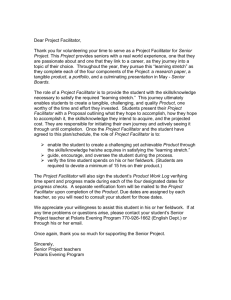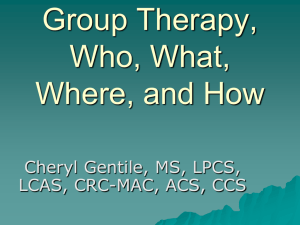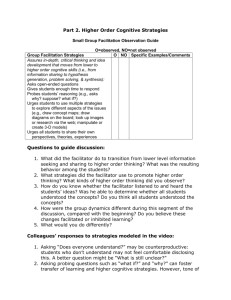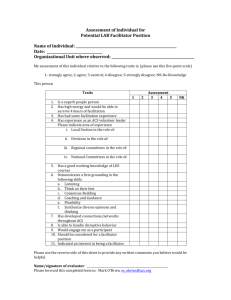Encouraging Faculty Development through Learning Communities
advertisement
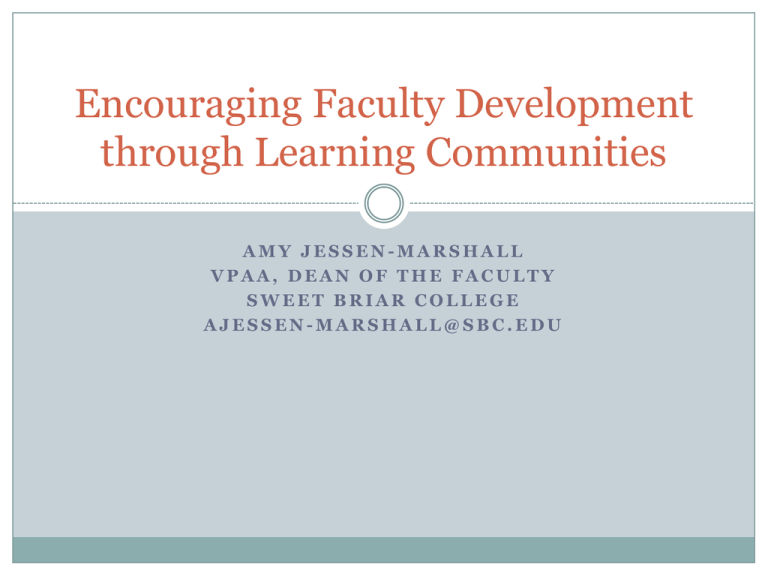
Encouraging Faculty Development through Learning Communities AMY JESSEN-MARSHALL VPAA, DEAN OF THE FACULTY SWEET BRIAR COLLEGE AJESSEN-MARSHALL@SBC.EDU Learning Communities Definition Long history Faculty development Curriculum development? Examples of success Challenges and recommendations Learning Communities What do you already know about learning communities? Experiences? Definitions What a learning community is not: A committee A task force Definitions What a learning community is: A COMMUNITY An opportunity for faculty/staff to explore a topic of interest in an active, collaborative format. Usually multidisciplinary Generally 8-12 people in size A way for faculty to share ideas and work on pedagogy projects Definitions What a learning community is: A group that meets for a set amount of time (generally a year) and then disbands. Has an outcome/project Supportive and reflective Scholarship of teaching and learning model Long history Leader- at the University of Miami in Ohio- Milt Cox http://www.units.miamioh.edu/flc/ Lots of resources: Creating Learning Communities: A Practical Guide to Winning Support, Organizing for Change, and Implementing Programs. Shapiro, Nancy S.; Levine, Jodi H. Jossey-Bass Higher and Adult Education Series, 1999 Powerful Learning Communities: A Guide to Developing Student, Faculty, and Professional Learning Communities to Improve Student Success and Organizational Effectiveness, Lenning et al,Stylus Pub. 2013 Common model for Centers for Teaching and Learning Learning Communities for Faculty Development Organizing learning communities Topical interest and application Allow group to form and decide on own topic Book reading group/brown bag lunch meetings Learning Communities for Faculty Development Examples: Scholarship of teaching and learning (1-2 years) Using technology in the classroom First generation learning and pedagogies ePortfolio development Others? Expectations Communities will meet biweekly or triweekly Facilitator identified to help organize (Not chair) Social component encouraged (Semester dinners) Summary or presentation at end of project Expectations Resources important Project Books FOOD! funding Curriculum development? Risky? CTL director really nervous. Global learning project for AAC&U Three learning communities Sciences Humanities Social Sciences Curriculum development? Project based- global in classroom Social component Resources Summary at end with reflection NO SPECIFIC CURRICULAR RECOMMENDATIONS! Next steps for curriculum Used projects from global learning communities as examples of successes. Important for middle group of faculty for buy in. Initial draft for learning outcomes. Created leaders for next steps- core group Core group charged with goals/outcomes and modeling to share with larger faculty groups. Challenges Common meeting times Accountability Facilitator training Could go horribly wrong Or could go fantastically well Conversation and questions: Could you see a model like this working on your campus? Timeline? Topics?
